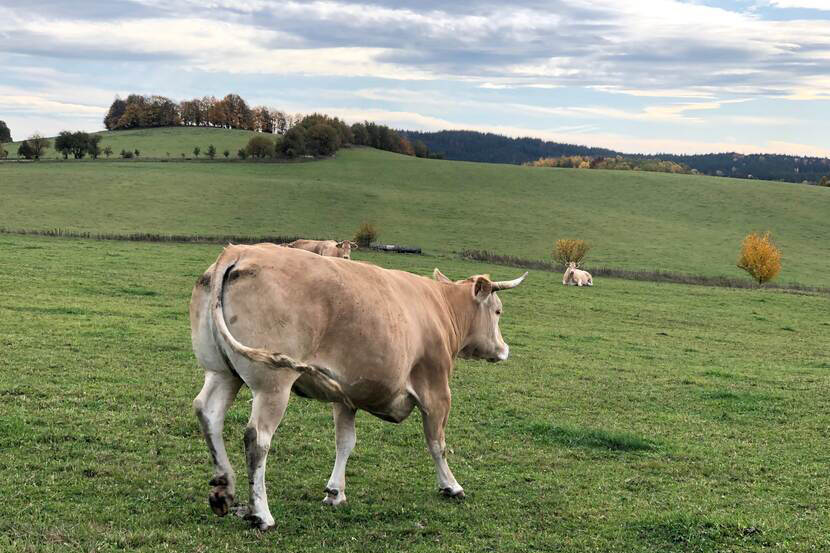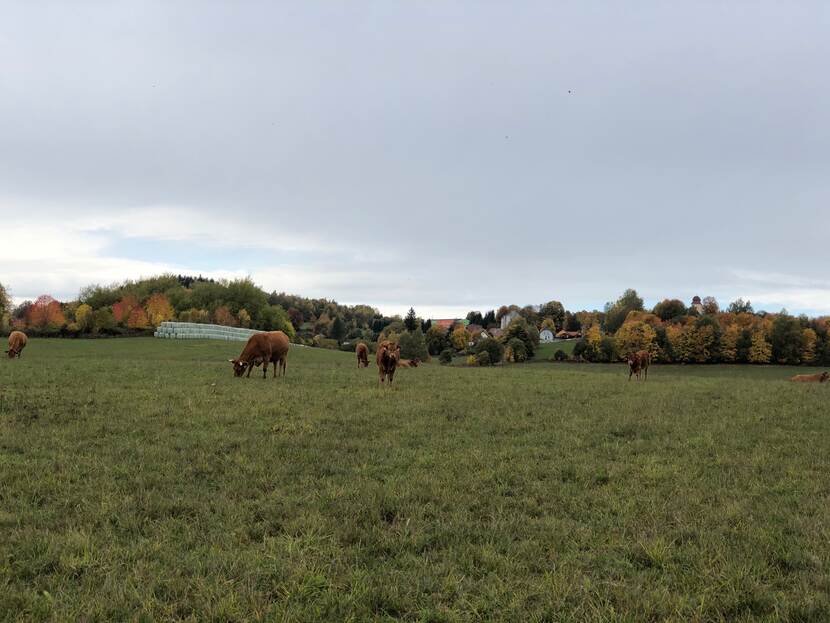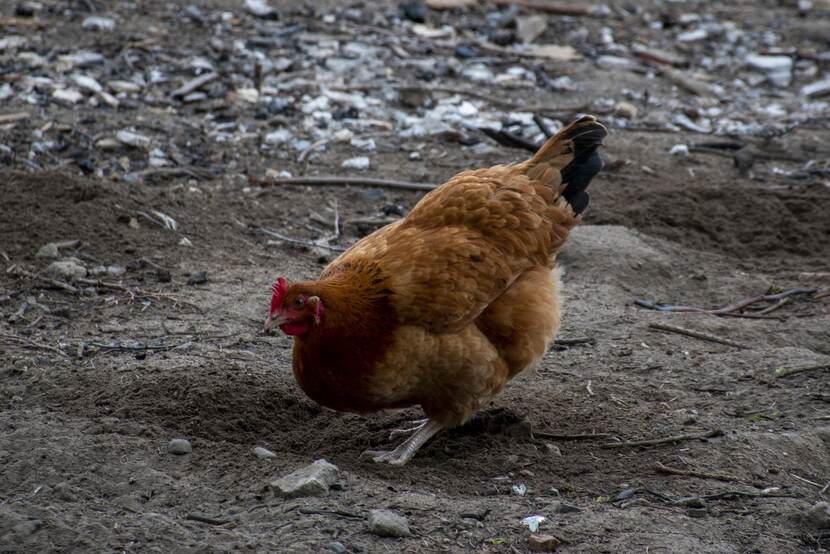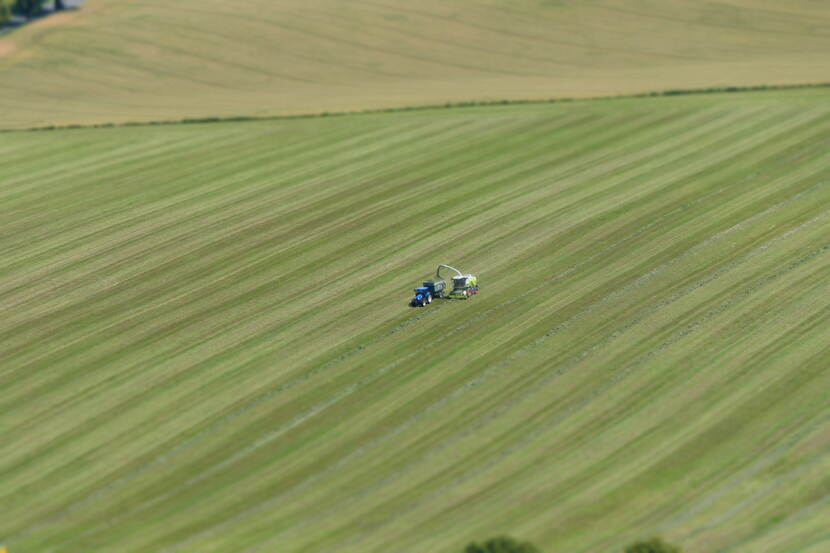Agricultural news from Slovakia and Czechia
In this agricultural newsletter we bring you news from Czechia & Slovakia. In Czechia, the agricultural production in 2020 grew but the income fell. Furthermore: strict COVID-measures are in place, the 2nd agrifood COVID program will be announced on March 15, three animals in a zoo tested positive on COVID and new outbreaks of HPAI were confirmed. In Slovakia, the ministry of Agriculture warns against purchase of illegal plant protection products and also strict COVID measures are in place.
Agricultural news Czechia

Agricultural production 2020: increase, but higher costs - income fell approx. € 9,5 mln
The Czech Republic's agricultural production increased by 1.5 bln crowns (approx. € 60 mln) to 152,6 bln crowns last year, helped by more favorable climatic conditions and better harvest yields. However, the overpopulation of field voles (field mice), which spread from Moravia to the Czech regions last year, had an adverse effect on crop production. The Ústí nad Labem and Central Bohemia regions were most affected.
Overall, compared to the previous year, production increased by 1%, costs increased by 1.7%. The entrepreneurial income of agriculture fell by a quarter of a billion crowns (approx. € 9,5 mln). Preliminary data on Czech agriculture were prepared by the Institute of Agricultural Economics and Information (ÚZEI). "Although the result of net value added increased due to better harvests last year, the final value of income from agricultural activity fell by 1.4% to 19.8 billion crowns. Roughly 57% of this amount goes to companies of natural persons, for whom it is not only a profit, but also a source of funds to pay remuneration for their own work .”
Last year, agriculture also had to deal with the negative effects of the coronavirus pandemic, which affected the agricultural workforce as well as the prices and sales of agricultural commodities. The total production was increased mainly by crop production, which is estimated to increase by 2.3% year-on-year. Livestock production fell slightly by 0.6%.
The value of production of oilseeds, sugar beet, fruit, wine, fodder crops, milk and eggs increased year-on-year. Reductions are expected for cereals, potatoes, industrial crops and beef. Pork production is expected to have similar results as in 2019.
Full press release Zemědělská produkce 2020: nárůst, ale i vyšší náklady. Podnikatelský důchod českého zemědělství poklesl loni o čtvrt miliardy korun (eAGRI)
Covid restrictions Czechia
From Saturday, 27 February, a new state of emergency was declared in the Czech Republic for 30 days, i.e. until 28 March.
Up-to-date information is available on the website of the Czech government Aktuální informace o COVID-19 – Oficiální informační portál Ministerstva zdravotnictví České republiky (mzcr.cz) Always check the official latest information of the Czech government and the latest travel advice of the Dutch government before travelling to Czechia Reisadvies Tsjechië | Ministerie van Buitenlandse Zaken | Tsjechië | Nederlandwereldwijd.nl | Ministerie van Buitenlandse Zaken
- The government has decided on a drastic tightening of the free movement of persons. People may not leave the district in which they live. Exemptions will apply for traveling to work or to a doctor. Visits to family in a different household, even within the same district, are banned, except in essential cases. Those traveling to work outside of their district will need written confirmation from their employer. Shopping is allowed within one’s district, but trips to nature or for sports are only allowed within one’s municipality.
- There are further restrictions in the retail trade and services. The government has reduced the number of exemptions from the ban on the presence of the public in work premises. Only essential stores including food stores, pharmacies, flower shops, pet-food stores, gardening shops and home-supply stores may be open.
- Face coverings that meet at least the FFP2 norm are now required in public transport, stores and government offices. At least a surgical mask is required in built-up areas of a municipality and at work. employers must equip those employees who come into contact with other people with a sufficient number of items of protective equipment for each shift.
- Companies with more than 250 employees have until March 10 to test all their workers for the coronavirus, or otherwise have to suspend operations. They will need to test all employees at least once per week, except those on home office. Companies with more than 250 workers employ 1,3 mln people. The Czech government also wants to require companies with up to 50 employees and small government offices to begin testing their employees once per week. This would bring to 4,3 mln the amount of workers tested on a weekly basis.

Announcements of the Czech ministry of Agriculture related to Covid
- The Czech ministry of Agriculture announced that - in addition to joint game hunting, the exercise of the right to hunt is not restricted, both in order to prevent the spread of dangerous diseases and to prevent damage caused by game in forests and agriculture, as well as to prevent game suffering.
- The Czech ministry of Agriculture provides a summary for Czech companies on the entry of foreign citizens into the Czech Republic for the purpose of employment in agriculture and food industry Aktuální informace pro české firmy ke vstupu zahraničních občanů do ČR za účelem zaměstnání v zemědělství a potravinářství – stav od 1. 3. 2021 (eAGRI)
|
Covid in three animals in Prague Zoo
COVID testing from stool samples in the Prague zoo showed that two Asiatic lions and a western gorilla have contracted COVID-19, nearly for sure from their keepers, but their symptoms have been very mild so far. The infected animals are monitored by their keepers and will receive symptomatic treatment if needed. Prague zoo staff is in touch with experts from other that experience COVID in animals. Further testing will follow. Zoos are currently closed over the coronavirus epidemic in Czechia.
Source: Reuters

Ten outbreaks of bird flu in 2021 in Czechia
In the weekend of 6-7 March 2021, two new outbreaks of Avian Influenza (bird flu) of the H5N8 subtype were confirmed in small poultry farms in two regions of the Czech Republic. The number of this year's outbreaks of this disease in farms in the Czech Republic has thus increased to ten.
The first new outbreak is located in a small poultry farm in the village of Velké Hoštice in the Opava region in the Moravian-Silesian region. The breeder reported to the regional veterinary administration the death of about half of more than a hundred pieces of poultry (hens, roosters, chickens and Peking ducks). Official veterinarians took samples on site and sent them for examination to the National Reference Laboratory for Avian Influenza at the State Veterinary Institute in Prague. This confirmed avian influenza of the H5N8 subtype. On Sunday, March 7, 2021, the remaining poultry was culled.
The second focus is located in the small breeding of hens and geese in the village of Březno near Mladá Boleslav in the Central Bohemian Region. The breeder reported the gradual death of the reared poultry. By March 8, 2021, 21 of the 22 poultry had died. The laboratory also confirmed the H5N8 avian influenza virus.
Source: State Veterinary Administration of the Czech Republic Ptačí chřipka – aktuální informace – Státní veterinární správa (svscr.cz)
Agricultural news Slovakia

Ministry warns for purchasing illegal plant protection products
In connection with the beginning of the growing season, the Ministry of Agriculture and Rural Development in Slovakia warns users of plant protection products of the high risk of purchasing illegal products. The available offer may include counterfeit products whose origin and composition are unknown.
All growers are urged to follow the valid List of Authorized Plant Protection Products and Plant Protection Products Authorized for Parallel Trade (the so-called Green Paper), which is published on the website of the Central Control and Testing Laboratory, when purchasing plant protection products. Institute of Agriculture in Bratislava (ÚKSÚP).
Link: https://bit.ly/306InEf
At the same time, ÚKSÚP operates a public web application of plant protection products and auxiliary products called "Information system for plant protection products" .
Link: https://bit.ly/2PwicEX
When purchasing plant protection products, farmers should request from their suppliers the number of the authorization decision or the decision number of the parallel trade permit for the products offered. Furthermore, it is advisable to always verify the information in the description of the goods on the packaging itself with the description of the goods on the accompanying and invoicing documents.
Covid measures Slovakia and agri related news
Always check the latest restrictions on the site of the Slovak government https://korona.gov.sk/en/ and before travelling to Slovakia (as Dutch citizen) check the latest travel advice by the NL ministry of Foreign Affairs https://www.nederlandwereldwijd.nl/landen/slowakije/reizen/reisadvies
- Stricter Covid measures are in place, including: from March 8, it will be compulsory to wear FFP2 masks in shops and in public transport and of March 15 in all public indoor places.
- Restrictions on free movement. Between 05.00 hours and 20.00 hours people can only go out for essential reasons while between 20.00 hours and 01.00 hours there is a night curfew. Also travelling between districts for the purpose of outings in nature is prohibited. The government announced that if the situation doesn’t improve in the next weeks, it will prepare for strict limitation of movement, suspension of production and closure of the country.
- Corona changed the shopping habits also in Slovakia. Sales of e-shops in the last year were 2,3% higher on average and sales in supermarkets were 5% higher in 2020 than in 2019.
- Restaurants which are allowed to offer meals just as takeaways or deliver it, are among the most hit branches of economy. The revenues of gastronomy businesses are in January and February 70% lower than last year, according to the Association of Hotels and Restaurants of Slovakia. The financial aid from state is late, for example 78% of applicants requesting compensations for cabinet measures from Transport Ministry have not received anything by February 12.
- The Slovak Union of Bakers, Confectioners and Pasta Makers is speaking about possible increase of prices of bakery products from March, by 7 to 10 percent, according to its calculations. The Union complains that they lack a helping hand of the state when they have to bear the costs associated with anti-pandemic measures. Moreover, also high prices of bread wheat are entering pricing. The Ministry of Agriculture and Rural Development plans to implement a new, so-called COVID call.